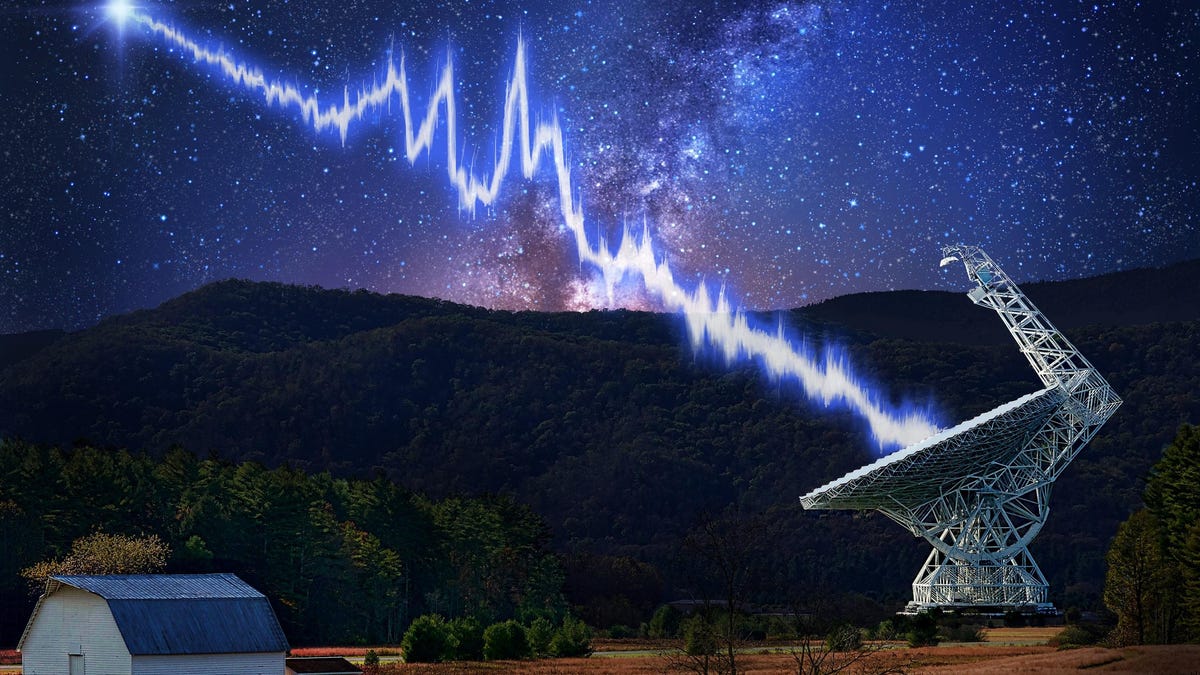More mysterious signals from deep space detected
New fast radio bursts from beyond our galaxy have been recorded, adding more data to help solve one of the universe's most recent puzzles.

Illustration of a radio telescope listening in to FRBs.
A new batch of alien signals has been picked up from the direction of two galaxies beyond our own Milky Way.
So-called fast radio bursts (FRBs) are one of the more enigmatic and unexplained cosmic phenomenon that have occurred recently. A few dozen of the powerful, fleeting pulses have been detected over the past 12 years, and Russia's Pushchino Radio Astronomy Observatory reported nine more on Friday.
The announcement comes on the heels of a major milestone published Thursday in which researchers traced a non-repeating FRB to a source galaxy for the first time.
Russian scientists found the new bursts in archive data from 2012 to 2018. They came from the direction of the galaxies M31 and M33, which are among the closest to our own Milky Way. However, the power level of the bursts suggests that they originate from much further away, that is, behind the two nearby galaxies.
One of the bursts from the direction of M33 was also observed repeating; this would be just the third repeating FRB ever detected. Repeating FRBs should also be easier to trace to their source.
It's still unclear what's generating FRBs, but suggested causes have included everything from neutron stars to extraterrestrial intelligence. Each new detection should get us closer to solving the mystery.

